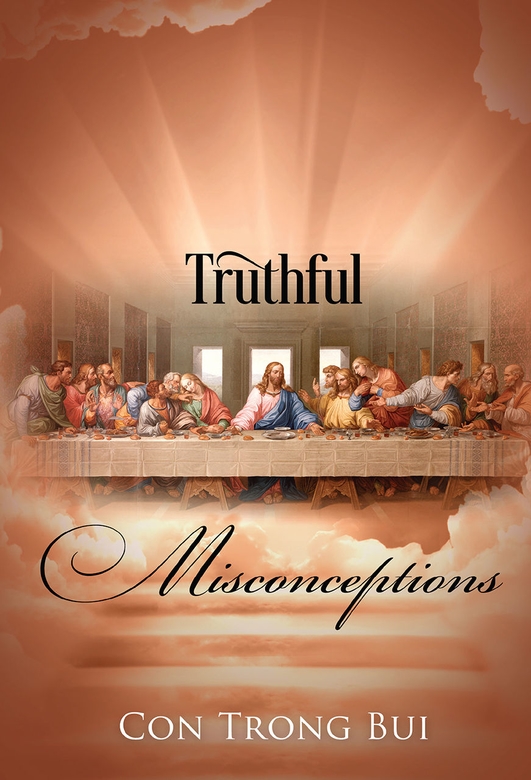
Author Con Trong Bui presents a comprehensive and multifaceted thesis about long-standing Christian dogma in his new book Truthful Misconceptions. Probing some of the most fundamental aspects of the faith, and applying a lens of science, logic, rhetoric, and a fine-toothed comb of theological history, Bui challenges everything from Adam and Eve’s existence on Earth and the resurrection of Christ to the prerequisites of salvation for believers.
The introduction explains the intention and approach of the book, explaining that it is not only for veteran Christians, but also for those who are new to the faith. The depth of this book’s analysis demands some prior biblical experience, as the subject matter is often presented in a way that assumes the reader’s familiarity with nuances of Christian dogma, but for these readers, the book is an intensive dive into doubt.
In some moments, the rhapsodic prose can almost read like a riddle, with a stream of closely worded questions directed assertively at the reader, one after another, so the book doesn’t quite allow the reader to absorb one concept before another comes barreling in. This is convoluted further by non-native phrasing and awkward syntax, which can make the questions more obscure than perhaps intended.
Additionally, the sheer volume of Scripture references can be somewhat overwhelming; this book is not something to sit down and read in a handful of sittings. There is an academic density to the more complex arguments about spirituality, physical forms of deities, paradise, and multiple heavens, and it can be a decidedly heavy subject to unpack. This is to the book’s credit, as it is exhaustively comprehensive, but the amount of information can sometimes be unwieldy.
When presenting such abstract, enigmatic, and metaphysical questions, the prose needs to be far more accessible. The author wants to make his points abundantly clear, but the puzzling speech patterns can occasionally undercut the message. At times, the text becomes nearly unreadable – dizzyingly difficult to parse through. The circuitous nature of the arguments being made doesn’t help this situation; the tone can be authoritative, but also challenging or standoffish. Generally, there is too much text, sentences are unnecessarily strung out, and arguments sometimes circle back on themselves or feel redundant.
There has obviously been a vast amount of research poured into the book, as nearly every page references new passages from Scripture, and the weak points of biblical belief Con Trong Bui identifies are thought-provoking. However, while such strongly worded prose can be compelling in terms of energy and obvious passion for the subject matter, it is intense even for a reader familiar with these topics, let alone someone new to such ideas. Despite what the author suggests, this isn’t an access point to Christianity, but more to those who have a penchant for skepticism, concentrating on the Bible’s most nebulous tenets and controversial corners.
Though the reading experience is less than ideal, the book is fiercely open-minded and intelligent, and could very well shake loose many faultlines of doubt in readers open to the message. The enigmatic title of the book suggests it will result in an expanded perspective on long-held ideas, and in that way, Bui delivers.
Book Links
STAR RATING
Design
Content
Editing
Get an Editorial Review | Get Amazon Sales & Reviews | Get Edited | Get Beta Readers | Enter the SPR Book Awards | Other Marketing Services























Leave A Comment